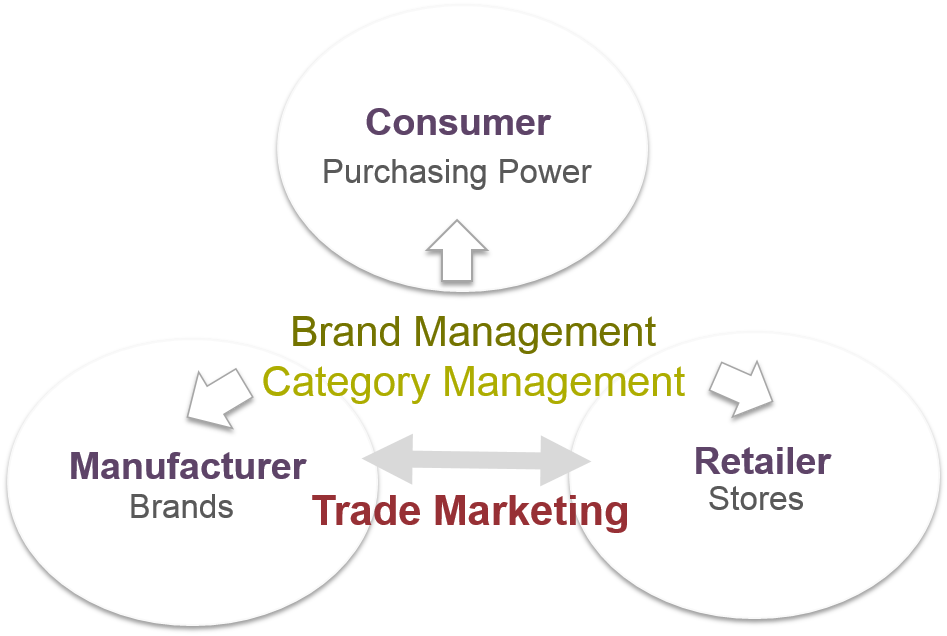“If you control your factory, you control your quality; if
you control your distribution, you control your image.” — Bernard Arnault, Louis
Vuitton MH.

Exhibit 33.5 Trade Marketing, the partnership — it remains in the best interests
of both manufacturers and retailers that categories are well managed.
Manufacturers rely heavily on their trade partners
— a brand must first gain and hold distribution before consumers can buy it. To
secure their trade partners support in procuring, distributing, promoting and
merchandising, manufacturers need to market their products to them.
This form
of business-to-business marketing where manufacturers seek to grow their
business with their retailers, wholesalers and distributors by building value
added relationships is called trade marketing (Exhibit 33.5). It is of great importance
especially for products where brand choice decisions are made in stores at point-of-purchase.
Trade marketers devote considerable time and resource to partner
retailers in developing their brands and categories in their stores. This is an ongoing
process with long term commitment that yields business gains for both parties.
Trade marketing requires considerable tact
as manufacturers and retailers strive to achieve the delicate balance
between their shared objectives and their distinct individual goals. On the one hand,
these partners work together to enhance marketplace equity, and improve the overall
performance and profitability of the category, but on the other hand, they are engaged
in competition for the profit that can be generated from the sale of goods.
They rely on conflicting profit models. Manufacturers seek economies
of scale and a return on investment, whereas retailers are interested in
economies of scope and return on inventory.
That they share complementary resources and
capabilities strengthens their bond and increases the likelihood that both
achieve their respective goals. Yet, there is the need to ensure that the engagement
does not hover solely on negotiating discounts and trading terms, and that greater
attention is devoted to the development of brand loyalty, store loyalty and
marketplace equity. To sustain and strengthen the relationship, it is important
the partners continuously align and strengthen their mutual self-interests.
The process of category management has become a
crucial component of the trade marketing process. It serves to bring
manufacturers closer to their business partners in a constructive process that
encourages sharing of plans and strategies, synchronizing activities and
resources, as they jointly work towards building marketplace equity.